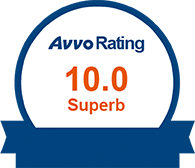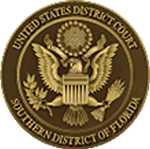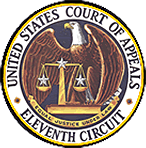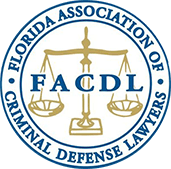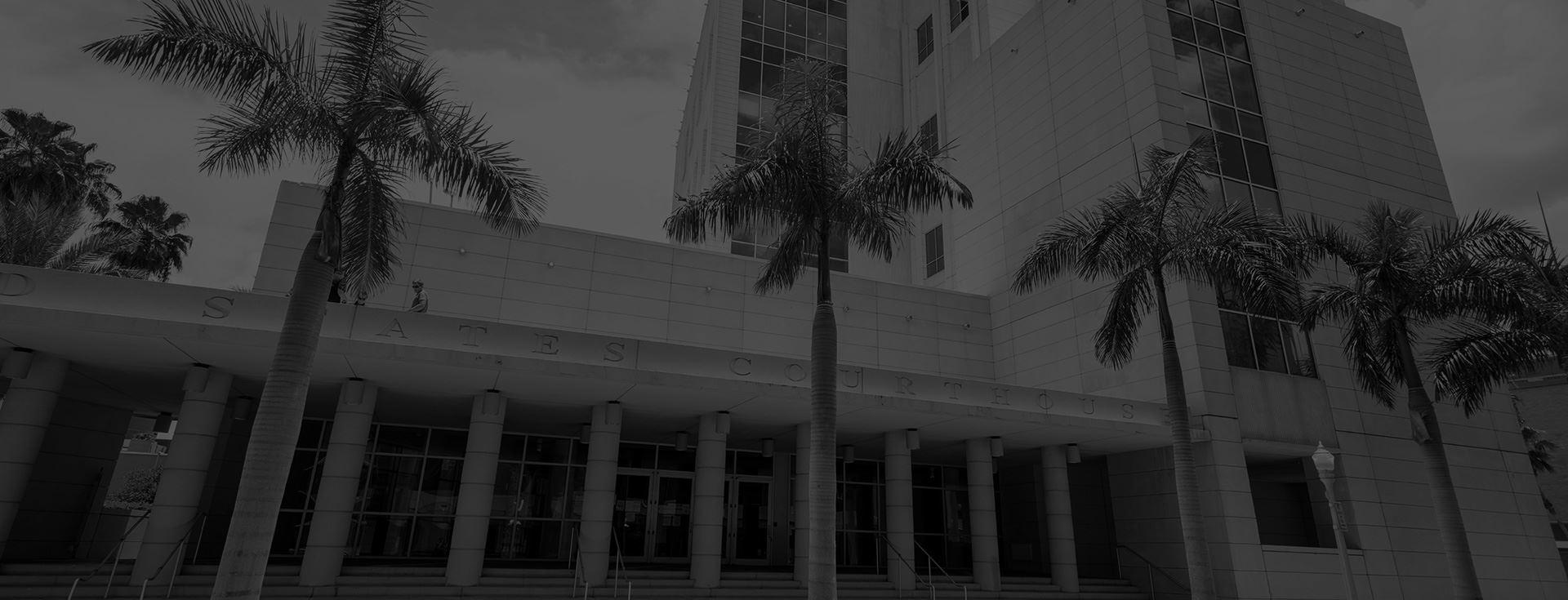
Your Case Deserves Immediate Attention - Call Hubbs Law Today
Miami Battery & Aggravated Battery Lawyers
Florida’s Battery Laws Defined by Statute Chapter 784
Battery ranks among the most frequent crimes committed in Florida. Under the Florida Statutes, Chapter 784, Section 784.03(1)(a), battery occurs when a person "actually and intentionally touches or strikes another person against the will of the other or intentionally causes bodily harm to another person." (The similar but separate offense of assault [F.S. § 784.011] is an act of hostility or aggression against another person, including a verbal or physical threat and is a second-degree misdemeanor.) Assault and battery are both considered to be violent crimes.
Simple battery is a first-degree misdemeanor in Florida. Aggravated battery, meanwhile, is a second-degree felony in Florida, with much more severe penalties than simple battery. Aggravated battery (F.S. § 784.045) occurs when a person commits battery and "intentionally or knowingly causes great bodily harm, permanent disability, or permanent disfigurement, or uses a deadly weapon in committing a battery."
A person may also be charged with aggravated battery if the alleged victim was pregnant at the time of the alleged offense. Additionally, charges may increase if a weapon was used, a permanent disability was an outcome of the battery, or if they person accused of battery used a deadly weapon.
If you were arrested for battery under F.S. § 784.03 or aggravated battery under F.S. § 784.045, then you should speak with a Miami battery attorney about your case. A qualified attorney will be able to explain the charges against you and the potential penalties you face and can help you defend yourself. There may be possible defenses to the charge or other evidence may be available that leads to a reduction or dismissal of the charges.
Hubbs Law Firm is experienced in defending against battery and aggravated battery charges in the Miami area. Our founding attorney, E.J. Hubbs, represents people throughout Miami-Dade County, including Hialeah, Miami Gardens, Miami Beach, Coral Gables, Kendall, Homestead, Doral, Pinecrest, North Miami and South Miami, as well as other communities all over the Miami area.
E.J. Hubbs has been Board Certified in Criminal Trial law by the Florida Bar. Board certification is one of the highest accolades bestowed by the Bar, and it indicates competency and experience within an area of law and professionalism and ethics in practice.
Contact Hubbs Law Firm at (305) 570-4802 today to schedule an appointment with our knowledgeable attorneys. We can explain all the aspects of your battery case, including possible defenses that may apply.
Types of Battery in Florida
Depending on the circumstances of an alleged battery, the crime may be charged as simple battery, a first-degree misdemeanor, or as aggravated battery, a much more serious second-degree felony. An intermediate charge is felony battery, which occurs if the defendant commits a battery which unintentionally causes great bodily harm. Felony battery is classified as a third-degree felony.
Battery
The Florida Statutes, Title XLVI, Chapter 784, § 784.03 defines "battery" as when a person:
- Actually and intentionally touches or strikes another person against the will of the other; or
- Intentionally causes bodily harm to another person
The Florida Supreme Court's Standard Jury Instructions in Criminal Cases § 8.3 specify that either of the following elements must be proved beyond a reasonable doubt for a conviction of the crime of battery:
- Defendant intentionally touched or struck the victim against his or her will; or
- Defendant intentionally caused bodily harm to the victim
A person who commits a second or subsequent battery after a prior conviction for battery, aggravated battery, or felony battery will be charged with a third-degree felony.
Note: Under F.S. § 777.04(1), attempting to commit a battery but failing or being prevented from carrying out the battery is punishable as a second-degree misdemeanor.
Aggravated Battery
Section 784.045 of the Florida Statutes and the Florida Supreme Court's Standard Jury Instructions in Criminal Cases § 8.4 define aggravated battery as:
- Battery committed while using a deadly weapon; or
- The person who allegedly committed the battery intentionally or knowingly caused great bodily harm, permanent disability or permanent disfigurement
A "deadly weapon" is defined as a weapon that "is used or threatened to be used in a way likely to produce death or great bodily harm."
Aggravated battery is a second-degree felony in Florida.
Note: Under F.S. § 777.04(1), attempting to commit an aggravated battery but failing or being prevented from carrying out the aggravated battery is punishable as a third-degree felony whether the battery was carried out, a lesser but nevertheless serious charge.
Other types of battery charges include:
- Domestic battery (F.S. § 784.03), a first-degree misdemeanor
- Domestic battery by strangulation (F.S. § 784.041(2)(a)), a third-degree felony
- Aggravated battery on a pregnant female (F.S. § 784.045(1)(b)), a second-degree felony
- Battery on a law enforcement officer (F.S. § 784.07(2)(b)), a third-degree felony
- Aggravated battery on a law enforcement officer (F.S. § 784.07(2)(d)), a first-degree felony
Penalties for Battery and Aggravated Battery in Miami, FL
Battery is a first-degree misdemeanor in Florida, punishable by up to one year in jail and a fine of up to $1,000. Aggravated battery is a second-degree felony in Florida, punishable by up to 15 years in prison and a fine of up to $10,000.
Felony battery (F.S. § 784.041) is a lesser offense than aggravated battery, but a more serious offense than simple battery. A violation of this law is charged as a third-degree felony, which is punishable by up to five years in prison and a fine of up to $5,000. If you are not a U.S. citizen, any type of battery conviction may result in your removal from the United States.
Hubbs Law, P.A. Battery Legal Defense Strategies
A legitimate defense to battery exists if consent was granted. Boxing or other contact sports are examples of when consent is often granted.
A person accused of battery may also be able to successfully claim self-defense or the defense of another or others. A person is legally permitted to defend himself or herself by using a reasonable amount of force against another person in order to prevent injury or to stop an imminent threat. Self-defense requires a showing of an immediate threat. Florida's stand-your-ground statute (F.S. § 776.013) may qualify as a defense to a charge of battery as a justifiable use of force for some situations.
If you were charged with battery or aggravated battery in Miami or Miami-Dade County, you should strongly consider contacting an experienced criminal defense attorney about your case.
At Hubbs Law Firm, we defend people charged with battery, aggravated battery, and similar crimes all over Miami-Dade County. Hubbs Law Firm represents clients in Miami, Miami Beach, Coral Gables, Hialeah, Miami Gardens, North Miami, South Miami, Homestead, Palmetto Bay and anywhere else in the county.
Our Board Certified attorney is aware of many possible defenses to battery charges, including self-defense. As your advocate, E.J. Hubbs will fight for your rights and pursue a reduction or outright dismissal of the charges you face, if possible.
Call Hubbs Law today at (305) 570-4802 to schedule a free initial appointment to discuss your case.
Additional Resources
- Florida Statutes, Title XLVI, Chapter 784, § 784.03 — Battery — Read the language of the Florida law related to battery and felony battery.
- Florida Statutes, Title XLVI, Chapter 784, § 784.021 — Aggravated Battery — Read the language of the Florida law related to aggravated battery.
- Florida Supreme Court Standard Jury Instructions for Criminal Cases 8.3 (Battery) and 8.4 (Aggravated Battery) — Find the exact jury instructions that are given to juries in cases of battery and aggravated battery in Florida.

Attorneys E.J. & Erika Hubbs
As professional Miami criminal defense attorneys, we take every case personally give every client the deliberate care it deserves. Our clients become part of our family and we fight relentlessly for their rights. Read more about us to find out how we can help you.

-
Me and my wife were instantly pleased with her knowledge and professionalism
Carlos Urbina -
He will walk you thru the process without sugar coating it like other lawyers.
TRUJR -
She made the process seamless, she was there for any questions we had, answered our phone calls or emails, and stayed on top of our case.
Alfred Pereira


